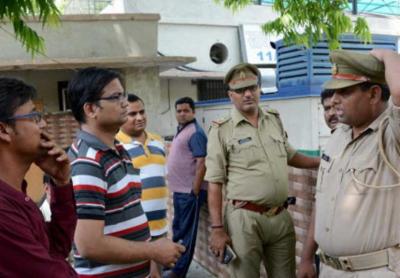Lucknow, Jul 6: The Central Bureau of Investigation (CBI) that is probing the mysterious death of Karnataka cadre IAS officer Anurag Tewari, who was found dead on the road in Lucknow in May, is banking on the viscera report to solve the mystery.
According to the sources here, the CBI team, even almost a month after probing the matter, has failed to conclusively establish the cause of Tewari’s death.
Sources said the viscera report was likely to be made available to the investigating agency by the Chandigarh-based forensic laboratory next week.
Sources said the CBI team had so far not found anything during its investigation that pointed to any foul play in the IAS office’s death.
Tewari’s postmortem report was inconclusive though the police officials had suspected asphyxia as a possible cause of death. The mystery further deepened after heart failure was ruled out as a possible cause of death.
Tewari, who was commissioner, Food, Civil Supplies and Consumer Affairs department in Karnataka, was found dead here on May 17. His body was found lying on the side of the road a few metres away from a government guest house where he was staying.
Various theories made rounds after Tewari’s death. While members of his family alleged that he had fallen victim to a conspiracy hatched by his superiors, who could have been exposed by him, the police said that ‘drug overdose’ could also be a cause of death.
The CBI had also visited Bahraich, the native town of the officer and quizzed his childhood friends to gather information about his habits.





Comments
This is Just Drama only Patanjali Ketchup applied on head, RSS goons are doing all sort of propaganda
Add new comment